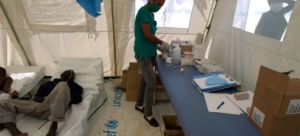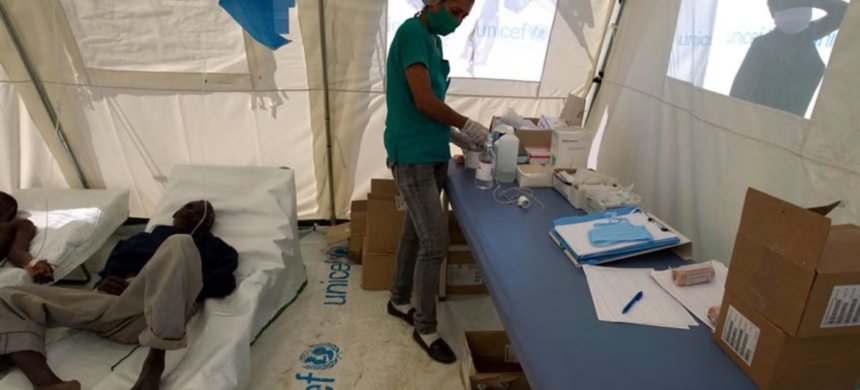Haiti’s Ministry of Public Health and Population (MSPP) has reported about 2,900 cholera cases nationwide so far this year. Of these, over 1,000 confirmed infections have been reported, with several suspected cases recorded between January and November 3, 2025. Health Minister Dr. Sinal Bertrand announced these figures on Tuesday during the 28th edition of Les Mardis de la Nation at the Prime Minister’s Office.
The metropolitan region of Port-au-Prince remains the hardest hit, accounting for roughly 20 community deaths and seven institutional deaths, according to the ministry. While cases have also been reported in other departments, including parts of the southern peninsula, the government’s primary focus remains on the West Department, where the highest transmission rates are recorded.
Meanwhile, in Pétion-Ville, the commune with the largest number of reported infections, officials noted a decline in cases throughout October. The drop is partly attributed to the closure of two water sources in Pélerin 5, where fecal contamination was detected during testing.
Dr. Bertrand urged anyone showing symptoms to seek immediate care at Oral Rehydration Points (ORPs), Treatment Units (UTCs), or Cholera Treatment Centers (CTCs). Several facilities are being operated in partnership with Médecins Sans Frontières (MSF) — including one in Bristout — while the Ministry manages another in Thomassin and is setting up additional centers in Canapé-Vert and Cité-Soleil, where two new ORPs are already operational.
According to the MSPP, Cité-Soleil has seen a decrease in new cases thanks to ongoing prevention and sanitation measures. The ministry also acknowledged the collaboration of local hospitals, including Fontaine Hospital and Saint-Luc Hospital, in treating patients free of charge.
Additionally, the Economic and Social Assistance Fund (FAES) has been coordinating with the Ministry of Health to support logistics and community outreach efforts.
No Surge in the South After Hurricane Melissa
Minister Bertrand denied widespread rumors of a cholera resurgence in southern Haiti following the passage of Hurricane Melissa. He emphasized that preventive measures were taken well in advance of the hurricane to equip hospitals and regional health directorates.
Furthermore, he explained that WASH (Water, Sanitation, and Hygiene) activities—organized in partnership with the National Directorate for Potable Water and Sanitation (DINEPA), UNICEF, and other partners—are being implemented to prevent secondary outbreaks. “We know that after a hurricane, if no action is taken, we can see surges in cholera, diarrhea, typhoid, malaria, and urinary tract infections,” Bertrand noted.
However, the minister acknowledged ongoing difficulties in implementing WASH initiatives, as essential supplies for water treatment, sanitation, and disinfection remain in short supply.
Bertrand emphasized the importance of prevention through water purification, the distribution of Aquatabs, mobile health clinics, and public awareness campaigns that encourage citizens to follow hygiene guidelines and safe food practices.
Cholera: A Persistent Global Threat
According to the Pan American Health Organization (PAHO) and the World Health Organization (WHO), cholera is an acute diarrheal infection caused by ingestion of food or water contaminated with the Vibrio cholerae bacterium. On a global scale, it remains a serious public health threat and a marker of social inequality and underdevelopment.
The WHO estimates that annually there are between 1.3 million and 4 million cases of cholera worldwide, resulting in 21,000 to 143,000 deaths each year.
Haiti had officially declared the elimination of cholera on February 4, 2022, after more than three years without a confirmed case. However, new outbreaks resurfaced in October 2022, and localized flare-ups have since been reported — particularly between 2024 and 2025 — prompting continued epidemiological surveillance in high-risk areas.
Reporting by CTN News from Port-au-Prince, based on official statements and remarks from Haiti’s Ministry of Public Health and Minister Sinal Bertrand.








